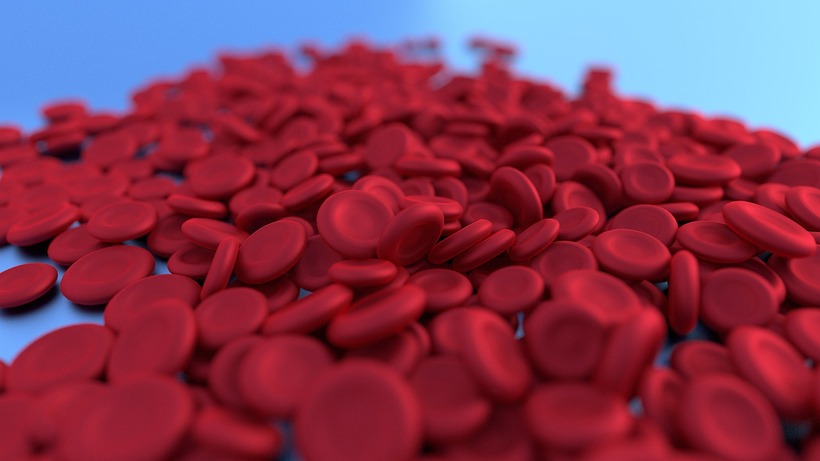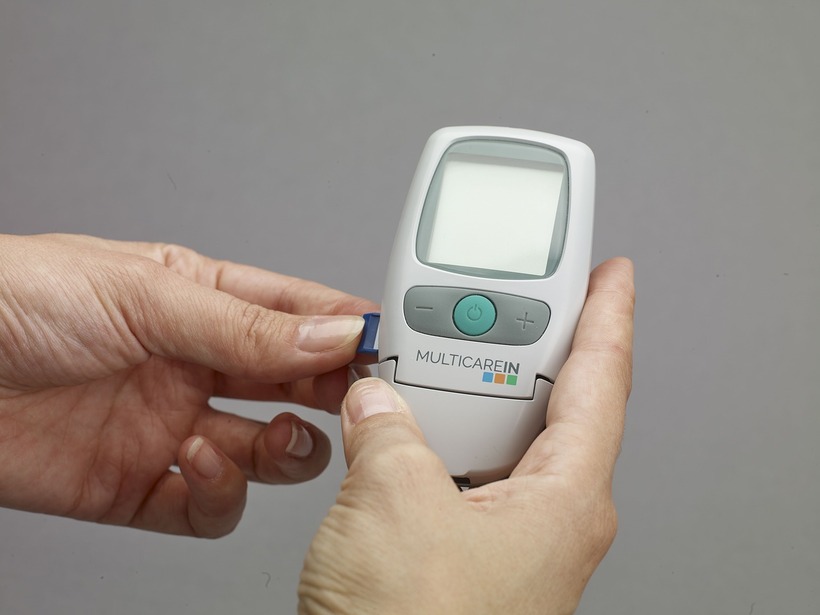Low energy and fatigue got you feeling low? Iron is what you need for healthy, energized red blood cells. Maximize your body’s performance with this guide to the best time to take iron, find out how to use this precious mineral now!
Table of Contents
Why iron is important
Iron is essential for our body, it carries oxygen and helps make red blood cells. Without it, we can feel weak and get anemia, that’s why knowing why it’s important is key to good health.
Iron deficiency can cause bad stuff like lower energy, and a weaker immune system, and can even mess with your brain. Plus, it keeps your hair, skin, and nails looking good.

It also helps your muscles when you do physical activity and gives them the oxygen they need, so you can work out longer and better. Iron is also great for kids as it helps them grow.
Pregnant women need even more iron to help their baby develop and avoid issues like preterm birth or low birth weight. They need more because of increased blood volume and red blood cell production. So, having enough iron is vital for both mother’s and baby’s health.
Take your iron! It’s not just about surviving, it’s about thriving! Get your daily dose of iron and you’ll be ready to start the day with a bang.
Best time to take Iron
Optimizing iron benefits? Here’s what to keep in mind:
- Morning: Take iron on an empty stomach for better body utilization. Wait an hour before breakfast for the best effects.
- With Vitamin C: Pair iron with vitamin C-rich foods or supplements for better absorption.
- Avoid Tea and Coffee: Avoid tea and coffee two hours before and after consuming iron supplement.
Consult a healthcare provider for personalized advice. Consistent iron intake ensures good well-being and meets nutritional needs. How much iron should you take? Just enough to prevent rusting from the inside out.
How much iron should you take?
It’s all about balance when it comes to iron. Age, gender, and overall health should be taken into account. The recommended daily allowance for adults over 50 is 8mg, women aged 19-50 should take 18mg, pregnant women need 27mg. Too much can cause constipation, nausea, and stomach pain, too little can lead to anemia and fatigue.
Iron supplements are best absorbed on an empty stomach, an hour before or two hours after meals, but if it causes discomfort, you can take it with food.
Foods rich in iron
Iron is very important for our well-being and vitality, as it helps transport oxygen throughout the body, which is necessary for many processes. Eating foods that are rich in iron is a great way to ensure our daily needs are met.

Here are some delicious options:
- Spinach – a great source of iron and full of nutrients. Add it to meals or salads.
- Lentils – high in fiber and iron. Include them in your diet.
- Red meat – beef and lamb are excellent sources of heme iron. Eat lean cuts for the most benefit.
- Pumpkin seeds – tasty and full of iron. Sprinkle them on salads or add them to baking.
- Dark chocolate – yes, it’s true! Indulge in a bit of dark chocolate and get your daily dose of iron.
Plus, there are other less well-known iron-rich foods like quinoa, tofu, chickpeas, and fortified cereals, eat these regularly to make sure you have enough iron and stay healthy.
The benefits of taking Iron
Iron is an essential mineral with numerous benefits. This article covers the advantages of consuming iron correctly.
It brings a host of advantages:
- Healthy blood circulation: Iron helps make hemoglobin which transports oxygen around the body. This ensures optimum blood supply to organs and tissues.
- More energy: Iron aids metabolism of energy-producing nutrients like carbs, proteins, and fats. This prevents fatigue and boosts energy.
- Improved cognitive function: Iron encourages the synthesis of neurotransmitters which help brain cells communicate. This supports memory, concentration, and mental clarity.
- Stronger immunity: Iron helps produce and function white blood cells which fight off pathogens. This strengthens the immune system.
Certain people may require more iron (e.g. pregnant women, those with health conditions).
For optimal health, it’s essential to get sufficient iron, this can be achieved through balanced diets or supplements. The results are improved blood flow, higher energy levels, better cognitive abilities, and stronger immunity.
If you’re dealing with iron deficiency anaemia and considering ferrous sulfate supplements, knowing the best time to take iron can make a significant difference in your treatment.
Iron supplements play a vital role in pediatric medicine, especially for children who may have iron deficiency or inadequate iron intake through their diets. These supplements provide essential support for healthy growth and development during crucial stages of childhood.
Medical professionals often recommend iron supplements for children to bridge this nutritional gap and prevent iron deficiency-related issues. T
Taking regular iron has many benefits, so we should prioritize our health by understanding them, doing so lets us optimize our physical and mental performance, ultimately leading to a vibrant and fulfilling life.
The side effects of taking iron
Iron is a key nutrient we need for our body to work properly, but we must be mindful of the possible side effects when taking iron supplements.
- Stomach issues: Taking iron supplements can lead to nausea, vomiting, or diarrhea in some individuals.
- Constipation: This can happen as well, so it’s wise to drink lots of water and eat foods with fiber.
- Belly aches: Abdominal pain or cramps might occur. If that’s the case, consult your healthcare provider.
- Teeth staining: Iron supplementation can cause discoloring of the teeth. To avoid this, rinse your mouth after taking them.
Additionally, iron supplements could interfere with medication or keep other nutrients such as zinc and calcium from being absorbed.
Can iron be taken with other medications or vitamins?
Iron can be taken with other meds or vitamins, but it’s important to think through potential interactions, some meds can decrease absorption while others can increase it.

Factors like antibiotics can affect iron, for example, tetracycline can bind with iron and reduce absorption. So, it’s suggested to take doses apart by a few hours. Antacids with aluminum or magnesium can also interfere with iron absorption; so, take them separately.
Vitamins also affect iron absorption, vitamin C boosts non-heme iron found in plant-based food. On the flip side, calcium supplements impede heme and non-heme iron absorption, so don’t take them together.
Before starting an iron supplement routine, tell your healthcare provider about all meds and supplements you’re taking. They can provide personalized advice on timing and dosage adjustments for optimal efficacy and minimal interactions.
When not to take Iron?
Iron is an essential mineral with many important functions, but some health conditions and medications can mean consuming iron supplements isn’t advisable. For example, people with hemochromatosis or iron overload disorder should avoid them, too much iron can lead to organ damage.
People with gastrointestinal conditions like ulcers or inflammatory bowel disease may be advised against consuming iron supplements too. These conditions can cause irritation, making it hard for the body to absorb iron. Alternatives to increase iron levels may be recommended.
Certain medications can interact with iron, changing their effects or creating risks. For example, antibiotics like tetracycline and fluoroquinolones can stop iron from being absorbed by the digestive system. Proton pump inhibitors (PPIs) used for gastric problems can reduce stomach acid production, which is needed for proper iron absorption.
Can iron supplements increase cholesterol?
Iron supplements may increase cholesterol levels in some individuals, and this can be a concern, as high cholesterol is linked to heart disease and other health issues, it’s important to understand how iron can affect cholesterol before consuming them.

Studies show iron can change cholesterol metabolism, resulting in an increase in LDL (“bad”) cholesterol. LDL cholesterol can cause plaque to form in arteries, leading to cardiovascular problems, not everyone will experience a rise in cholesterol when taking iron supplements. Factors like genetics, diet, and overall health affect how people respond to them.
Iron is also important for the body, it helps transport oxygen and is essential for red blood cell formation. Iron deficiency can cause weakness, fatigue, and low immunity. So, it’s important to weigh potential risks and benefits before consuming iron supplement.
Why do iron supplements cause constipation?
Iron supplements can sometimes cause constipation, this is because they interact with our digestive system in a unique way. When taken orally, it’s harder for the body to break down and absorb iron, this can lead to an accumulation of iron in the intestines, resulting in constipation.
Iron is an important mineral for carrying oxygen throughout the body, when taken as a supplement, it can cause some unwanted side effects. The reason? It needs a specific mechanism for absorption. A protein called transferrin binds with it and transports it into the bloodstream.
If too much iron builds up in the intestines, it can attract water from surrounding tissues, which makes the stool hard and difficult to pass.
To avoid or lessen constipation, drink plenty of water and increase fiber intake, fruits, vegetables, and whole grains all help promote regular bowel movements.
Can iron supplements cause early periods?
Iron supplements don’t necessarily bring on early periods, they can affect a woman’s menstrual cycle. It’s said that iron helps control hormone levels. If hormones are out of balance, your period may come earlier or later, iron deficiency anemia can cause irregular or heavy periods,
Need more info on iron deficiency? We’ve got it! Become the Iron Man with all the sources you need.
Frequently Asked Questions
What is the best time of day to take iron supplements?
It is generally recommended to take iron supplements on an empty stomach in the morning. This helps improve absorption as food can interfere with iron absorption. However, if this causes stomach upset, you can take them with a small amount of food.
Can I take iron supplements with other medications?
You should consult with your doctor or pharmacist before taking iron with any other medications. Some medications can interfere with iron absorption or vice versa, so it’s important to ensure there are no potential interactions.
Should I take iron supplements before or after a workout?
There is no specific recommendation for taking iron before or after a workout. It is best to stick to the general guideline of taking them in the morning on an empty stomach unless otherwise advised by your healthcare provider.
Can I take iron supplements with calcium or other vitamins?
Calcium can hinder iron absorption when taken together, so it’s generally recommended to take them at different times. Other vitamins, such as vitamin C, can actually enhance iron absorption, so consuming them together can be beneficial. It’s always a good idea to check with your healthcare provider for personalized advice.
How long does it take for iron supplements to start working?
The time it takes for iron to start working varies from person to person. In general, it may take a few weeks to a few months to replenish iron stores and see improvements in symptoms of iron deficiency. It’s important to take the supplements as prescribed and follow up with your healthcare provider for monitoring.
Are there any side effects of taking iron supplements?
Iron can cause side effects such as stomach upset, nausea, constipation, and dark-colored stools. If you experience severe side effects or have concerns, it’s advisable to consult with your healthcare provider.



